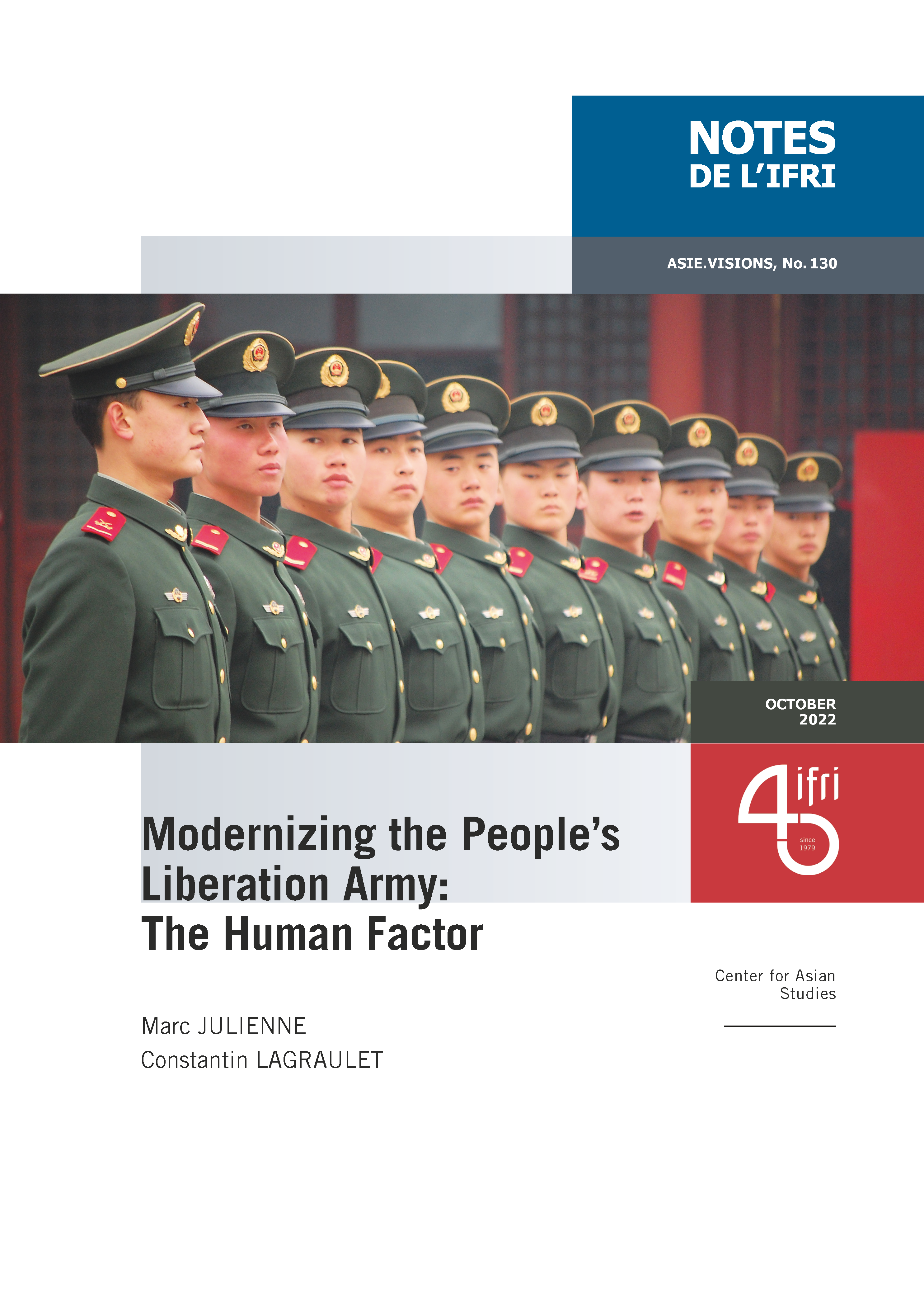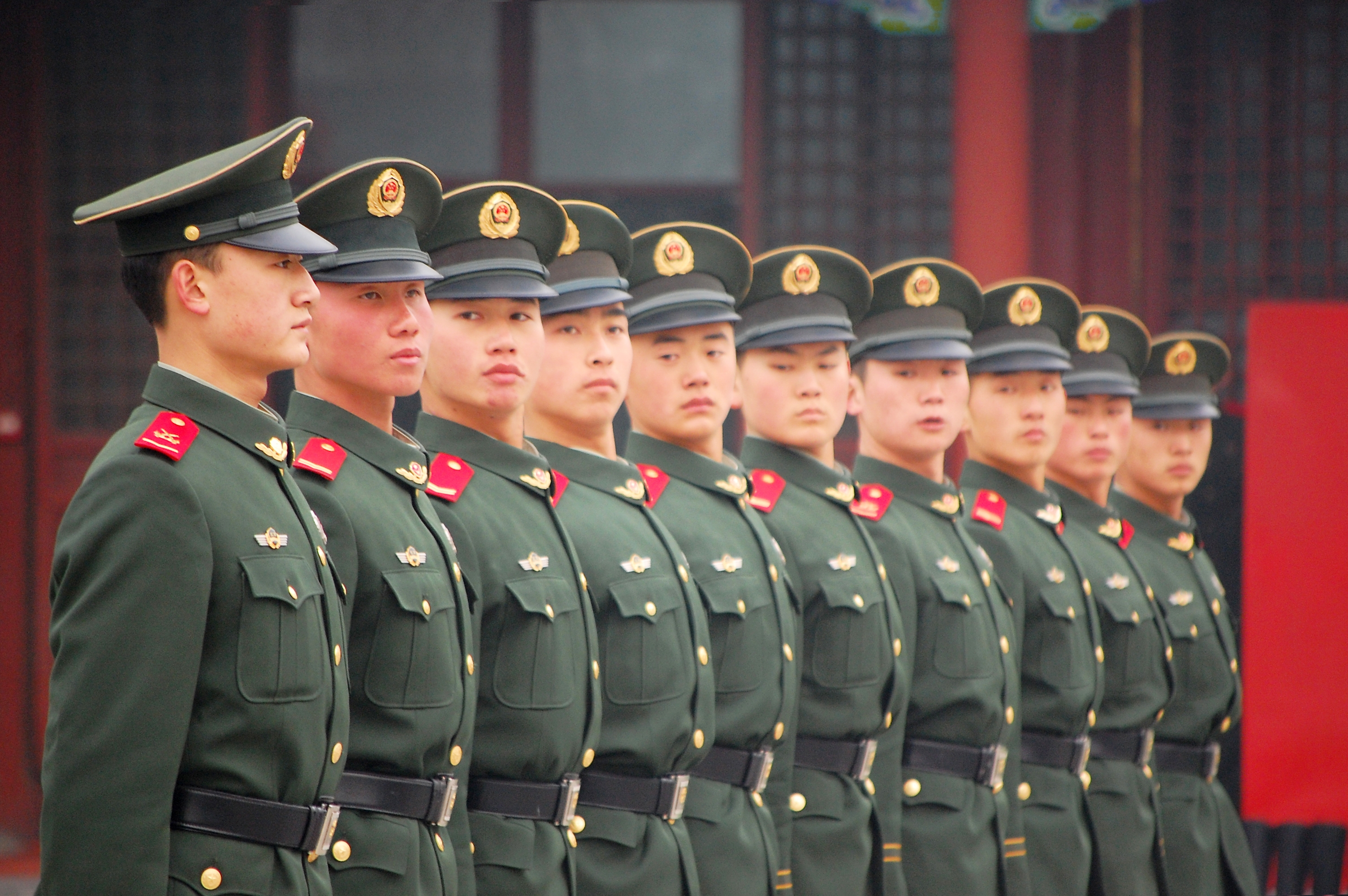Modernizing the People's Liberation Army: The Human Factor

The tremendous demographic challenges facing China will not significantly affect the People’s Liberation Army (PLA) in the immediate future, but will become more problematic in the medium and long term. The rapid aging of the population and the resulting socio-economic imbalances will put pressure on defense budgets, military wages and the general attractiveness of the army. For the time being, the PLA’s primary goal in terms of human resources is to build a less oversized, more professional army, prepared for high-intensity combat.

This objective is in line with the institutional reform of 2016, which shortened the chain of command and strengthened the political and ideological control of the Communist Party of China (CPC) over the PLA through an overhaul of the Central Military Commission (CMC).
This reform also involved a major restructuring of China’s armed forces. The PLA is pursuing a streamlining target that emphasizes quality over quantity. This qualitative improvement concerns equipment, forces and chains of command, and is driven by the need to elevate modernity, operational effectiveness and interoperability. An analysis of the evolution of the PLA Navy Marine Corps and the People’s Armed Police (PAP) demonstrates this qualitative upgrading trend and the prioritization of combat readiness.
To integrate increasingly modern and complex equipment, the PLA is also focusing on recruiting and retaining young conscripts and volunteers with a high level of education, in order to increase the number of commissioned and non-commissioned officers. The major reforms being carried out thus aim to enhance the status of the military so as to strengthen its economic and social attractiveness. On the other hand, the PLA, like other armies around the world, is confronted with societal phenomena such as internet addiction, near-sightedness and obesity, which hinder its ambitions and force it to make trade-offs in its selection standards.
Download the full analysis
This page contains only a summary of our work. If you would like to have access to all the information from our research on the subject, you can download the full version in PDF format.
Modernizing the People's Liberation Army: The Human Factor
Related centers and programs
Discover our other research centers and programsFind out more
Discover all our analyses
Opening up the G7 to South Korea to Address Contemporary Global Challenges
The G7’s global influence has diminished as powers like China reshape international governance through initiatives such as BRICS and the Shanghai Cooperation Organisation (SCO). With the G7 now representing just 10 per cent of the world’s population and 28 per cent of global GDP, its relevance is increasingly questioned.
Expanding SPDMM as a pivotal institution in the Pacific – A French perspective
The South Pacific Defence Ministers’ Meeting (SPDMM) is the only forum that brings together defense ministers from the wider South Pacific — including Chile, which is hosting it for the first time. This heterogeneous group of countries with varying resources, capacities, and interests — Australia, Chile, Fiji, France, New Zealand, Papua New Guinea (PNG), and Tonga — are united by their shared determination to strengthen cooperation on maritime security and humanitarian assistance and disaster relief (HADR) activities.
EU’s Derisking From China: A Daunting Task
With economic security as a major concern, the EU has recently turned to “derisking” from China. The EU strategy entails reducing critical dependencies and vulnerabilities, including in EU supply chains, and diversifying where necessary, while recognizing the importance and need to maintain open channels of communication.
Sri Lanka’s NPP Government. From System Change to Structural Compliance
In September 2024, a relative outsider to Sri Lanka’s two-party-dominated political system, Anura Kumara Dissanayake, won the presidential elections. The anti-establishment, populist movement he represented, the National People’s Power (NPP), went on to receive an overwhelming mandate in the November 2024 general elections, winning 159 seats in a 225-member parliament.











